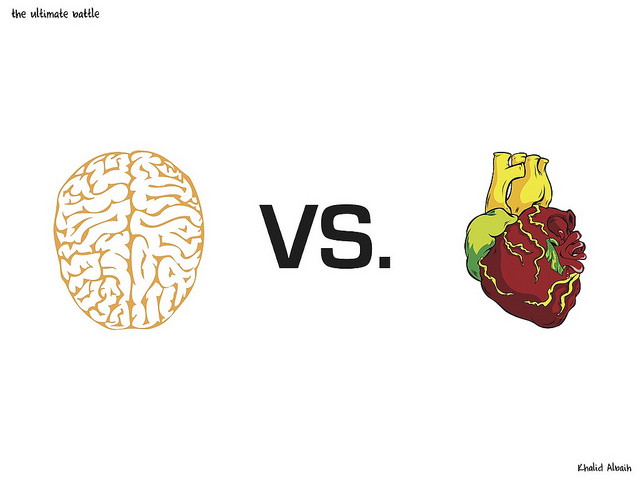The question, “Is this serving me?” arises from the idea that we should only bring things into our lives that add value.
Once we have answered that question, we should consistently reassess what is already in our lives to determine if it continues to add value. I do this in many areas of my life, including possessions, relationships, sentiments, and behaviours.
It is important to note that some things can serve you long-term and others short-term—and we should know how to distinguish between the two.
Things that serve us in the long-term will make us happy for a while, possibly many years. Things that serve us in the short-term, however, satisfy us only in the moment. I strive to include things that will serve me long-term as well as short-term, although that is not always possible.
I want to have a strong, supple body that will serve me well throughout my life. I don’t ever want to be encumbered by my physicality and want to be able to do whatever I like with my body for as long as possible. So, in the long-term, exercising regularly and eating well will get me to that goal.
However, short-term decisions can also serve us.
Sometimes, I just want pizza and beer (or wine, really), and sometimes I want to rest instead of going to yoga. My long-term choice is yoga and healthy food—the short-term choice is pizza and rest. On occasion, the short-term choice is good for me whereas, if chosen repeatedly, it will become bad for me, and I will suffer the consequences.
I regularly make decisions that will serve me in the long-term. These are easily identified because they make me feel good in the moment and they will benefit me in the future. Short-term decisions often make us feel good in the moment—but are not good for our future.
So, when asking the question, “Does this serve me?” we need to recognize if it is a short or long-term decision—and choose accordingly. It’s okay for things to serve us in both ways, we just need to be aware of the function each choice plays in our life. This is also a helpful question if we find we’re consistently unhappy with something.
Possessions.
If you’re unaware of the concept of minimalism, I urge you to check out The Minimalists. They’ve written many articles on the topic. The central theme is: bring only that which adds value to your life.
With my possessions, I do exactly that. I’m intentional about what I have around me and if I find that I’m not regularly using something, or I am keeping it “just in case,” I get rid of it because someone else may get more use out of it than I do.
My clothes are a good example. I purge about twice a year and go through my drawers to see what I have not used or worn in the last while and donate them. So, as summer comes to an end, I get rid of all the summer clothes I did not wear that season. I don’t keep duplicates. When I buy a new jacket, I get rid of an old one.
I aim to have durable items that I love. This generally means less items in total, but ones that I enjoy and that bring immense value to my life. A friend of mine shared his shopping philosophy with me: “F*ck yes or f*ck no!” Only buy clothes you love, not stuff that’s just “okay.”
Relationships.
I believe that we should only stay in relationships from which we can benefit in the long run. This does not mean consistently purging relationships as we do clothing and other possessions.
There’s more to it than that.
First, we must determine what we want and need from a relationship for us to benefit or feel fulfilled by it. In my long-term, deeper friendships, I require open, honest communication that allows me to feel connected to the other person. This is non-negotiable for me, and anyone that I don’t share authentic communication with, I spend less time with.
That doesn’t mean that if on second or third time I spend time with someone, and I don’t get what I want from that interaction, that I’m cutting them out of my life completely. It means that I’m aware that I’m not getting what I regularly need and I will communicate that or create the circumstance under which we can fulfill that need.
For example, if I’m consistently hanging out with a guy I’m dating in group settings, I don’t expect to get authentic or deep conversation from him in those settings. So, we’ll get together one-on-one a few times so that the opportunities for those interactions are there.
Depending upon my level of comfort with him, I may also tell him exactly which needs are not being met so that we can discuss ways of meeting them. We should determine what we need from our interactions with others, and also, how often we need it. Together, we create the opportunities for those needs to be met.
Sentiments.
By sentiments, I mean overall outlook on life, not a short period of time when we feel sad or angry or upset. As adults, we have the opportunity to pick up and put down ideas about the world and how it works. We can believe that everything is going to work out all the time or we can believe that nothing ever works out. The world (and our world within it) will continue, regardless of our thoughts about the events we experience. We get to choose our experience.
I’m not saying that this is easy, but rather, a choice. Ultimately, it’s a choice that over the long-term will make us feel better. So, we can choose to experience our world in whatever way we wish. We can view situations through whatever lens we want, and ultimately, we get to choose if that lens serves us or not. We can change it if it doesn’t.
Behaviors.
Behaviors are similar to sentiments.
We get to choose our behavior all the time and may change our behavior if it is not serving us. Once we recognize that we are 100 percent responsible for all of our actions, we can never say that someone or a situation “made us do it.”
Our behaviour is never involuntary. Sure, it may be for dogs and children, and there may be instances in which we’re not in the proper state of mind to make a sound decision, but, most of the time, we are completely responsible for our behavior.
I grew up in a household of screamers and criers. As a kid, I learned that to be heard or to express myself I had to make a loud noise. I hated seeing this in my parents and this sort of behaviour made me feel terrible. So, once I realized, as an adult, that I had the choice to not behave in this way, I began making different choices.
Instead, I began calmly stating my feelings and why I was experiencing them. The interesting thing about this is that when I began choosing not to scream, the rest of my family began making the same choice, because screaming was no longer working for them in their interactions with me.
These are just my personal examples of where I have used the question “Is it serving me?”
It is important to ask it whenever we feel unhappy or powerless. The answers to this question can bring forth a multitude of changes, fulfillment, and happiness.
~
Author: Becca Leslie
Image: Khalid Albaih/Flickr
Editor: Lieselle Davidson
Social Editor: Yoli Ramazzina











Read 2 comments and reply